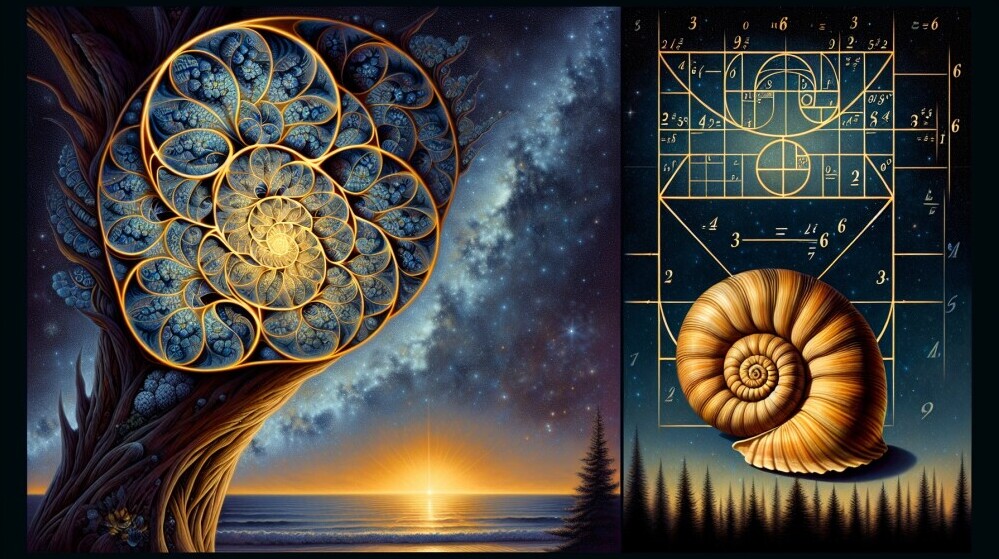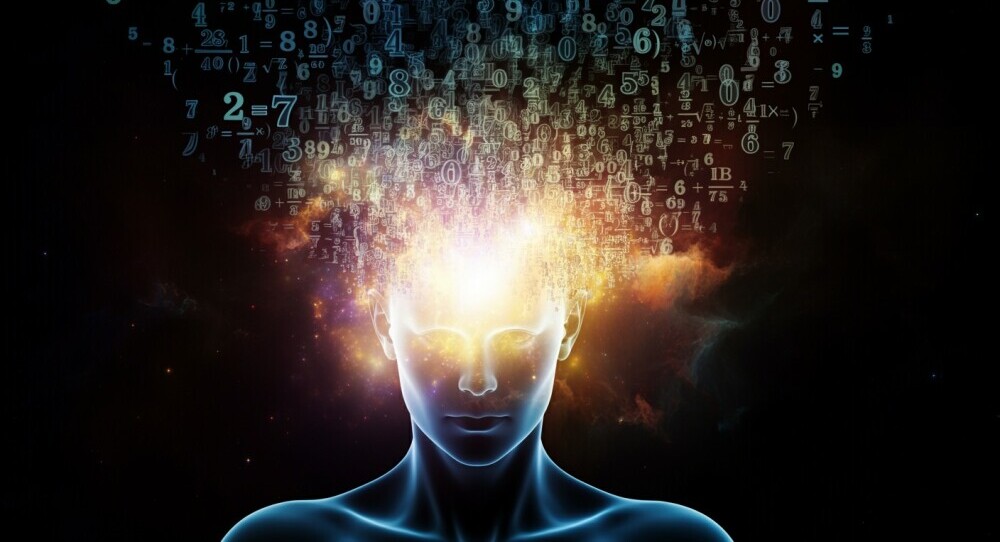
Material and mental realities are fundamental aspects of our understanding of the world. Material realities are the tangible things you can touch and see, like cars and puppies. They’re the objects that occupy space, have weight, and play a big role in our physical environment.
On the flip side, mental realities exist in the mind. Think of your memories, beliefs, or the thoughts that keep you up at night. These are not things you can physically hold, but they have significant sway over how we perceive and interact with everything around us.
This divide between the material and mental is crucial. It’s like understanding two sides of the same coin. Both exist simultaneously, and each has its own set of rules and dynamics that shape our experiences.
As you navigate daily life, being aware of these distinctions can help you better comprehend the complexities of your experiences. Often, the way we react to physical events can be heavily influenced by our mental landscapes. Recognizing this interplay can lead to a deeper insight into yourself and the world around you.

Mathematical Truths as Unchanging Realities
Mathematical truths are a fascinating slice of reality, standing distinct from both the material and mental categories we explored earlier. Take the classic example: 2+2 equals 4. This isn’t just some quirky fact but rather an unchanging truth that stands independent of the physical world.
Unlike a car or your favorite hoodie, mathematical truths don’t have a physical form. You can’t weigh or measure them, yet their validity remains untarnished regardless of the state of the world. Consider this: even if all books were to vanish and memories wiped clean, 2+2 would still equal 4. That’s what’s so mind-blowing!
These truths existed even before humans started counting their marbles, and they’ll outlast everyone and everything. It just keeps ticking on, unaffected by the chaos or calm that may engulf us all.
Wrapping your head around this independence can seriously change the way you view the concept of truth. While physical realities are often tied to a timeframe or depend on perceptions, mathematical truths are inherently timeless and universal.
By understanding this, you gain an appreciation for the constants that knit the universe together. It can bring a sense of stability and certainty in a world busily spinning through change. You can lean into these truths as reliable pillars when other things seem shaky.

Infinite Mathematical Truths and the Concept of an Eternal Mind
Infinity is a mind-bender. When we think about infinite mathematical truths, it pushes us towards considering something equally vast to know them all—an infinite mind. It’s like trying to wrap your head around the limitlessness of numbers. Some argue that this infinite mind could be what many call God.
Imagine an eternal mind capable of knowing every single mathematical truth. That’s quite the concept to ponder, right? It suggests an intelligence that exists beyond our limited perception, an intelligence aware of far more than our tangible reality. It’s this transcendence that fuels the debate around mathematical truths pointing to a higher power.
But not everyone’s buying it. Some skeptics call mathematics a human-made fiction, a mere construct lacking any real-world significance. Yet, if math was fiction, science would crumble with it, since science relies heavily on mathematical principles for proof and objectivity. And last I checked, science has given us more than our fair share of real, worked examples of truth.
Understanding this connection can help you appreciate the role of mathematics beyond mere numbers. It’s like finding the intertwined roots of a tree; one supports the other, creating a structure that stands firm even in the storm. It demonstrates that math isn’t just rule-bound theory but a means to understanding greater realities.
Getting to the heart of this argument can challenge your views on what constitutes real and unreal. It invites you to explore the potential of an infinite mind and how you connect to these timeless truths. In this exploration lies the potential for deep personal and philosophical growth.

Conclusion: Mathematical Truths as Evidence of a Higher Power
Mathematical truths may be the strongest proof of an unchanging reality in a world full of uncertainty. These truths remain constant, unaffected by physical or mental shifts. Their elegance lies in their perfect balance between simplicity and complexity, suggesting the presence of a deeper, perhaps divine, structure.
The timelessness and independence of mathematical truths open the door to the idea of an eternal, all-knowing mind—an entity many refer to as God. This divine intelligence would explain the consistent nature of truth, bridging the past, present, and future. Such truths seem to point to a universal order governed by something beyond human comprehension.
Even if you’re skeptical about the existence of God, it’s hard to ignore the power and stability of mathematical principles. They provide a solid foundation to explore the vast mysteries of the universe, reminding us that some things remain unchanged despite life’s chaos. Reflecting on these truths invites a journey not only through logic but also into deeper philosophical or spiritual realms.
Seeing mathematics in this light enriches both intellectual and spiritual pursuits. Whether you interpret these constants as evidence of a divine presence or as proof of the universe’s inherent order, they offer a stable ground for curiosity and wonder, leading us to questions far beyond the numbers themselves.
Here’s a little transparency: Our website contains affiliate links. This means if you click and make a purchase, we may receive a small commission. Don’t worry, there’s no extra cost to you. As an Amazon Associate I earn from qualifying purchases.
Recommended Books:
Five Proofs of the Existence of God Paperback, by Edward Feser (Author)
Existence of God: Aquinas, Five Proofs Paperback – by Christabel N. Pankhurst (Author)


Hello Emilio,
Your article, “Mathematical Truths: A Timeless Proof Of God’s Existence,” masterfully bridges the realms of material and mental realities with profound philosophical insights, offering a compelling exploration of truth’s constancy through the lens of mathematics and spirituality. Here, I’d like to engage with you on three key elements you’ve highlighted, drawing parallels with the timeless wisdom found in the King James Version (KJV) Bible.
1. Material and Mental Realities:
You adeptly outline the distinct yet intertwined nature of material and mental realities. This duality mirrors the biblical distinction between the physical and spiritual worlds. As 2 Corinthians 4:18 (KJV) reminds us, “While we look not at the things which are seen, but at the things which are not seen: for the things which are seen are temporal; but the things which are not seen are eternal.” This verse beautifully echoes your point about the transient nature of our physical surroundings compared to the enduring impact of our mental landscapes. Both realms shape our experiences, and recognizing this interplay can indeed lead to a deeper understanding of ourselves and the universe.
2. Timelessness of Mathematical Truths:
Your insight into the unchanging nature of mathematical truths is profound. Just as these truths remain constant, so does the divine nature portrayed in the Bible. Hebrews 13:8 (KJV) states, “Jesus Christ the same yesterday, and today, and forever.” This constancy is reflective of the immutable quality of mathematical truths that stand independent of time and circumstance, providing stability in a world full of change. Such truths invite us to appreciate the constants that knit the universe together, suggesting an elegant balance between simplicity and complexity akin to divine order.
3. The Concept of an Infinite Mind:
Delving into the idea of an infinite mind capable of knowing all mathematical truths, you touch on a notion that aligns with the biblical portrayal of God’s omniscience. Isaiah 40:28 (KJV) describes, “Hast thou not known? hast thou not heard, that the everlasting God, the LORD, the Creator of the ends of the earth, fainteth not, neither is weary? there is no searching of his understanding.” This scripture speaks to the boundless wisdom and understanding of God, resonating with your exploration of a transcendent intelligence beyond our limited perception. This invites us to ponder the potential existence of a divine intelligence that governs the universe with an eternal, unchanging truth.
Your article not only enriches the dialogue between philosophical reflections and biblical teachings but also encourages a deeper contemplation of how these timeless truths can guide our exploration of the universe. Thank you for inviting us on this introspective journey, where logic and spirituality intertwine to illuminate the mysteries of existence.
Stay Bless,
Eric
Hello Eric,
Thank you for your thoughtful observations and for taking the time to engage so deeply with the article. I appreciate your insight on the connection between material and mental realities and how both shape our experiences in a way that points to something beyond the physical world.
I completely agree with your point on the timelessness of mathematical truths. Their constancy really does reflect a deeper, unchanging order in the universe, which certainly points toward the existence of a higher intelligence.
Your third point about an infinite mind resonates with the idea of a transcendent intelligence governing everything with precision. These concepts together really do help us appreciate how logic and reason can lead to a greater understanding of God’s existence. Thanks again for adding so much value to the conversation!
Blessings
Thank you for this thought-provoking article! Your exploration of mathematical truths as timeless realities shines new light on the intersection of philosophy, spirituality, and logic. The concept of an eternal mind knowing infinite mathematical truths is fascinating.How would you respond to critiques that mathematical truths are merely human constructs? Are there additional resources or philosophers you recommend exploring for further insight?
Sorry for the late reply—your comment deserved a much quicker response. That question about math being a human construct is a good one. If math were just something we invented, it wouldn’t describe the universe so precisely. We discover math—we don’t create it. Even if no one existed, 2 + 2 would still equal 4. Thinkers like Augustine and Aquinas saw these unchanging truths as evidence of an eternal, unchanging mind—God.
For deeper dives, I’d recommend looking into Edward Feser, who connects classical theism with logic and metaphysics, and William Lane Craig, especially his work on abstract objects. Also, Alvin Plantinga touches on how necessary truths point to a necessary mind. They each approach it a little differently, but all wrestle with the idea that timeless truths need more than a temporary thinker.